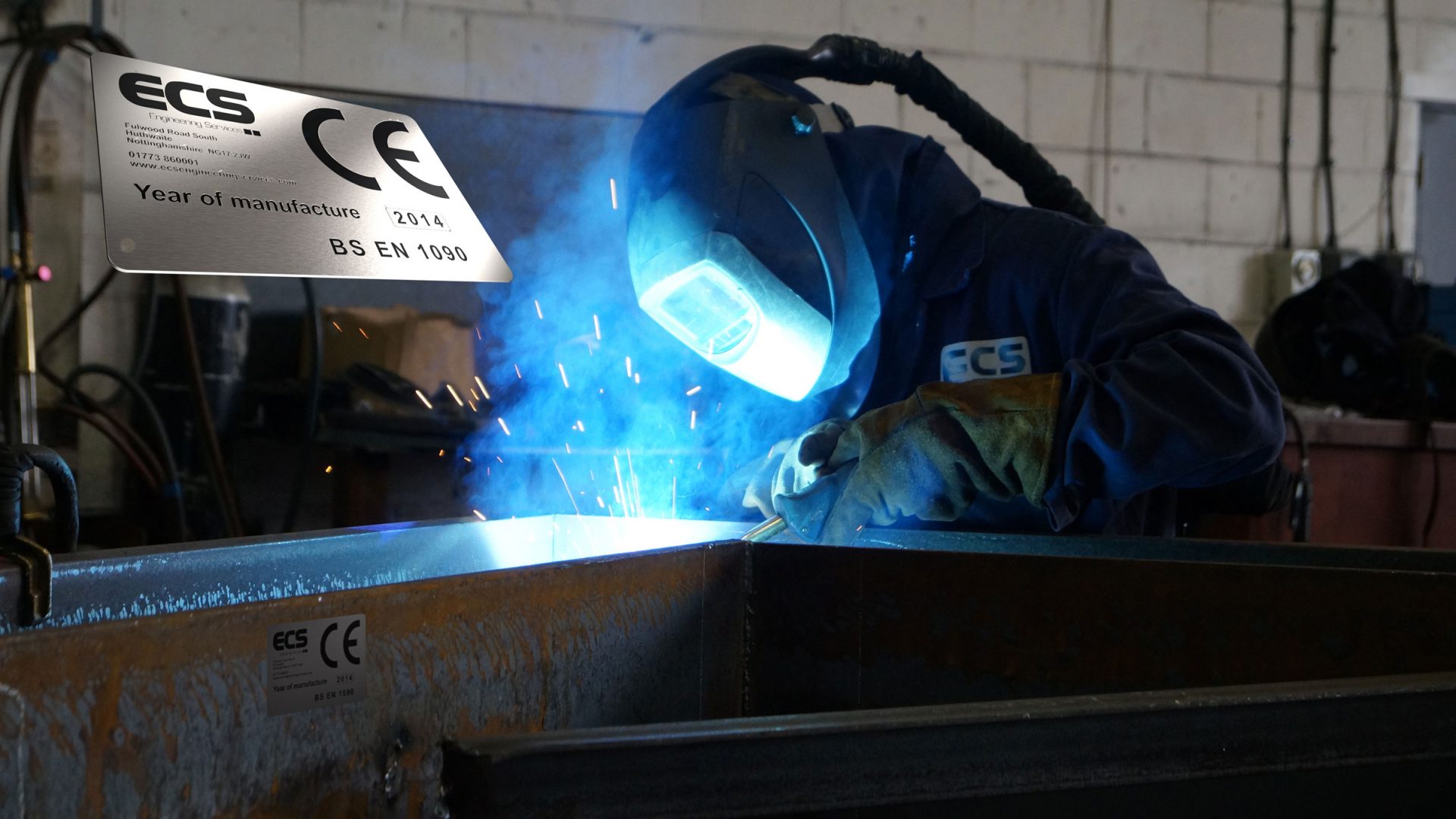
Steel fabricators need to beat countdown to CE marking deadline
Within the construction industry, 1st July 2014 marks the point when all fabricated structural steelwork must meet the harmonised European standard BS EN 1090 and carry the CE mark. The certification process can take more than 12 months to complete, depending on the procedures already in place and most companies should have now either completed it or are in the final stages.
John Cotterill, Operations Director (Fabrications) for ECS Engineering Services outlines the requirements and the processes involved in achieving CE certification.
CE marking is common on a wide range of consumer products and it provides a guarantee of safety, which is now being applied to the steel construction industry. Originally introduced in 1991, the Construction Products Directive (CPD) was never seen as mandatory in the UK but in 2013 the new Construction Products Regulations were released, making CE marking mandatory. The main difference being that unlike a directive, a European Regulation must be upheld by all member states and it is enforced by criminal law.
For a steel fabricating company such as ECS, investing in the people and processes necessary to achieve certification is essential in order to maintain one of its core businesses. For this reason, ECS began the process nearly 2 years ago by investing in training for two welding coordinators, who have been certified by the British Constructional Steel Association (BCSA).
Each business will have to decide the level of execution in which its products will be used and under BS EN 1090-2 determine the most appropriate class. For ECS it was the more arduous EXC3 which includes buildings and bridges but excludes special structures, such as long span bridges. This means that the quality processes and manufacturing expertise is appropriate for EXC3 projects as well as all those in the lower classifications.
Under BS EN 1090, a Factory Production Control (FPC) needs to be implemented, covering welding consumables, welding equipment, materials provided by approved suppliers, ensuring traceability of every component from source through the fabrication process and to final delivery to site. Implementing such a wide ranging process can be time consuming and requires the workforce to be trained to ensure all the relevant information is properly recorded and maintained.
Having implemented all the required processes and attained the necessary qualifications, it is time to be assessed by an approved body. In the case of ECS, it used the services of TUV Nord which has provided similar services for welding work carried out by ECS in power stations and nuclear facilities, which required independent 3rd party approval. The assessment looks at the integrity of the FPC, the training records of employees as well as their qualifications and competency.
In passing the assessment, ECS has proven that it has all the required attributes to apply the CE mark to its steel fabrications. Clearly in some cases, with all the different coatings and paints that can be applied to a finished fabrication, it may not be practical to stamp or affix the CE mark onto the steel. However, every finished product will leave the production facility with all the relevant documents which relate to the CE conformity included with the shipment. In this way, both ECS and the client are able to demonstrate that the regulations, as defined under BS EN 1090, have been complied with.
Gaining CE approval also allows ECS to maintain its membership of BCSA, which has proven its value throughout the process of obtaining certification, with regular seminars and other assistance which was provided. In order to ensure continued compliance with the regulations, the company will be reassessed annually by an independent body to make certain that the staff qualifications and FPC are being maintained.
This latest achievement by ECS underlines the professional and dedicated approach of its employees and complements previous awards under BS EN 14001, Environment Management and BS OHSAS 18001 Health & Safety Management as well as a sixth gold award from RoSPA.





